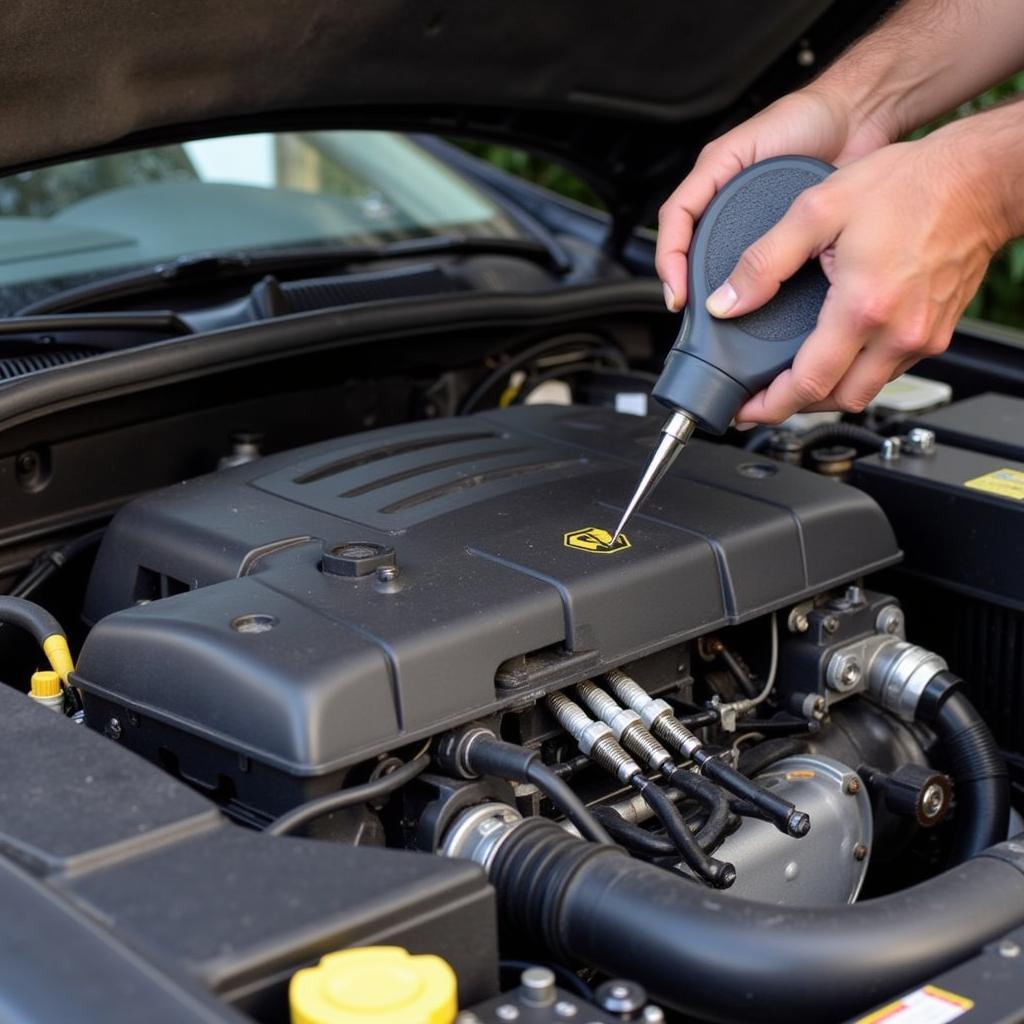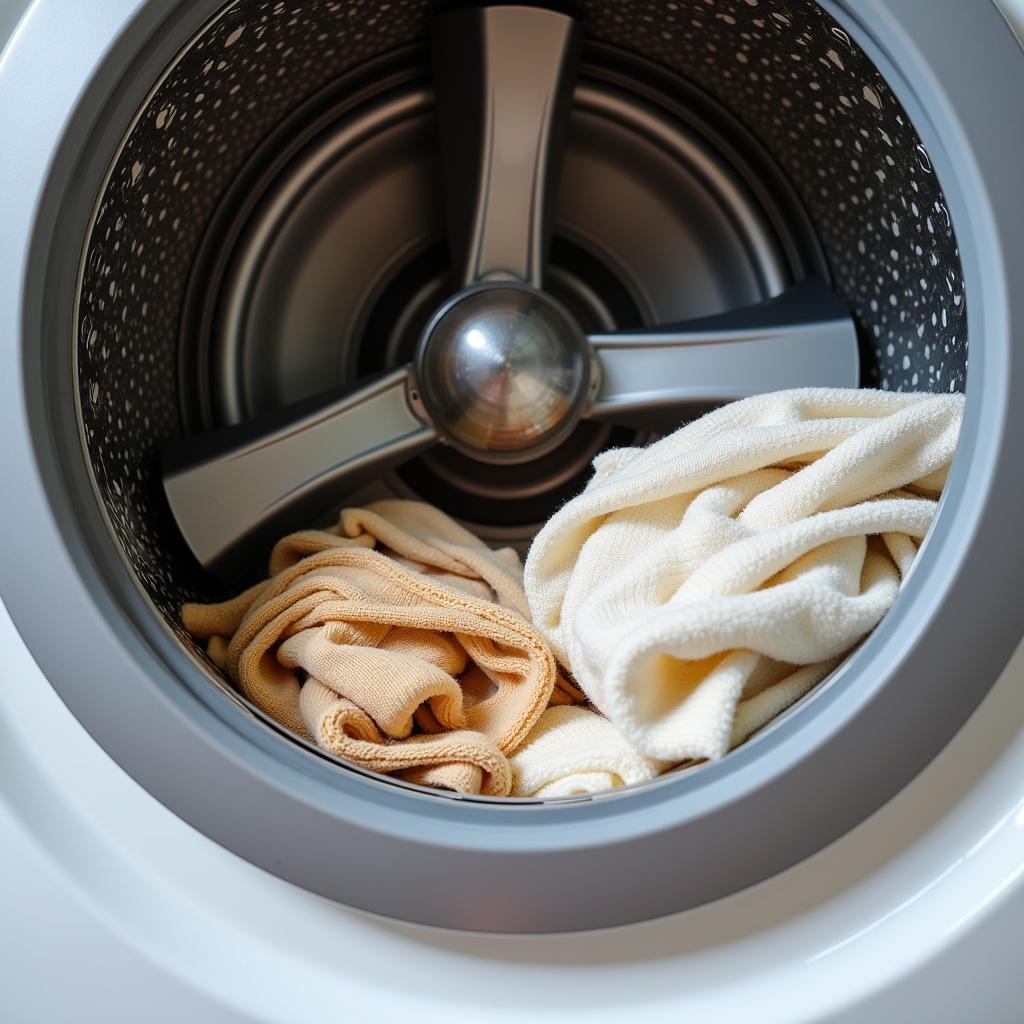Is your car radio antenna not working properly? This can be a frustrating problem, but it’s often easy to fix yourself. Whether you’re a car owner, auto shop owner, or a mechanic, this comprehensive guide will help you diagnose and fix common car radio antenna issues.
Common Car Radio Antenna Problems
Before diving into the solutions, let’s understand the typical problems you might encounter:
- No Reception: The most common issue is a complete lack of radio reception.
- Poor Reception: You might experience intermittent reception or weak signals, especially when driving in certain areas.
- Static or Noise: A noisy radio signal can be caused by a variety of factors, including a faulty antenna.
- Antenna Won’t Extend: Some car antennas are motorized and might fail to extend, preventing reception.
- Antenna Broken or Bent: Physical damage to the antenna is another common problem, often caused by accidents or careless handling.
Identifying the Cause of the Problem
The first step to fixing your antenna is figuring out what’s wrong. Here’s a step-by-step approach:
- Check the Antenna Connection: Start by inspecting the connection between the antenna and the radio. Ensure it’s securely plugged in and there’s no corrosion or damage.
- Inspect the Antenna Wire: Carefully trace the antenna wire from the radio to the antenna. Look for any breaks, kinks, or frayed wires.
- Test the Antenna Motor (If Applicable): If your antenna is motorized, check if it extends and retracts properly. If it’s stuck or unresponsive, the motor might be faulty.
- Visual Inspection of the Antenna: Examine the antenna itself for any damage or bending. A broken or bent antenna won’t function correctly.
Troubleshooting and Fixing Car Radio Antenna Problems
Here are some practical solutions for common car radio antenna issues:
No Reception
- Re-connect the Antenna Wire: Ensure the antenna wire is properly connected to both the antenna and the radio. Sometimes, a loose connection can cause signal loss.
- Check the Antenna Fuse: A blown fuse can prevent the antenna from receiving signals. Check the fuse box in your car’s owner’s manual and replace the fuse if needed.
- Inspect for Corrosion: Corrosion on the antenna connection points can impede signal flow. Clean the connection points with a wire brush and apply a thin layer of dielectric grease to prevent future corrosion.
Poor Reception
- Adjust the Antenna: If your antenna is adjustable, try adjusting its height and angle. This can improve signal strength.
- Check for Obstructions: Objects like trees, buildings, or even mountains can block radio signals. If you’re in a built-up area, try parking in an open space with fewer obstructions.
- Install an External Antenna: For extreme cases of poor reception, consider installing an external antenna. This can significantly improve signal strength, especially in areas with weak radio signals.
Static or Noise
- Check for Loose Wires: A loose wire connection in the antenna circuit can introduce static or noise. Make sure all wires are securely connected.
- Replace the Antenna: If the antenna is old or damaged, replacing it with a new one can eliminate static or noise.
Antenna Won’t Extend
- Check the Antenna Fuse: Similar to the no reception issue, a blown fuse can prevent the antenna motor from working.
- Clean the Antenna Motor: Dust and debris can accumulate on the antenna motor, causing it to malfunction. Clean the motor with a compressed air can or a small brush.
- Replace the Antenna Motor: If the motor is damaged or worn out, you’ll need to replace it.
Antenna Broken or Bent
- Replace the Antenna: A broken or bent antenna can’t receive signals properly. Replacing it with a new one is the only solution.
Expert Tips
“A well-maintained antenna can significantly improve your car radio’s reception,” says John Smith, a seasoned automotive technician with over 20 years of experience. “Remember to check the antenna wire for any damage or breaks, and ensure the antenna is securely connected to the radio.”
“If you’re dealing with static or noise, consider cleaning the antenna connections,” advises Sarah Jones, a certified automotive technician. “Corrosion can interfere with signal transmission, resulting in poor sound quality.”
FAQs
- Q: Can I replace the antenna myself?
A: Yes, you can usually replace a car radio antenna yourself. It’s a relatively simple task. - Q: What type of antenna should I get?
A: The type of antenna you need depends on your car model and your specific requirements. Consult your car’s owner’s manual or contact a local auto parts store for recommendations. - Q: How do I know if my antenna motor is faulty?
A: If the antenna motor doesn’t extend or retract properly, or if you hear unusual noises coming from the motor, it’s likely faulty. - Q: Can a faulty antenna damage my car radio?
A: While a faulty antenna won’t directly damage your car radio, it can overload the system, potentially leading to other problems. - Q: How often should I check my antenna?
A: It’s a good idea to check your antenna regularly for any signs of damage or wear. This can prevent minor problems from becoming major ones.
By following these troubleshooting steps, you can identify and fix most car radio antenna problems without needing to visit a mechanic. Remember to always consult your car’s owner’s manual for specific instructions and recommendations. If you’re unsure about any part of the process, it’s best to seek professional help from a qualified automotive technician.
For expert advice on automotive repair and maintenance, contact AutoTipPro at +1 (641) 206-8880.






Leave a Reply